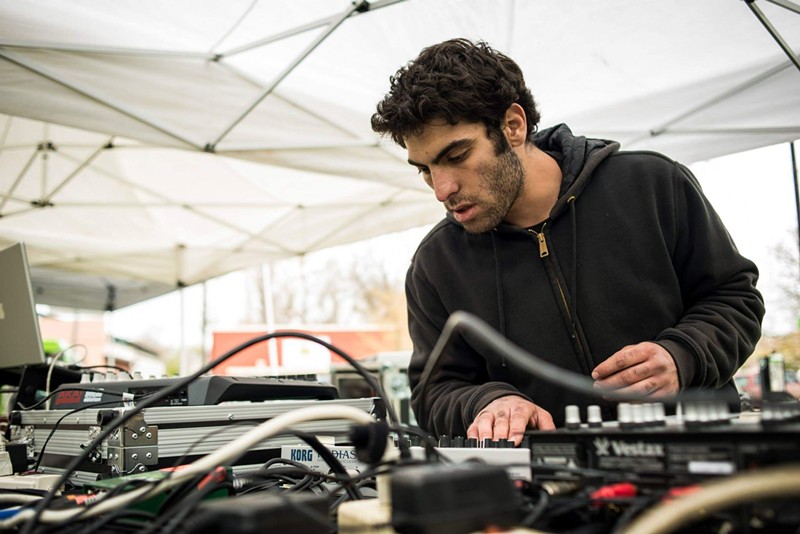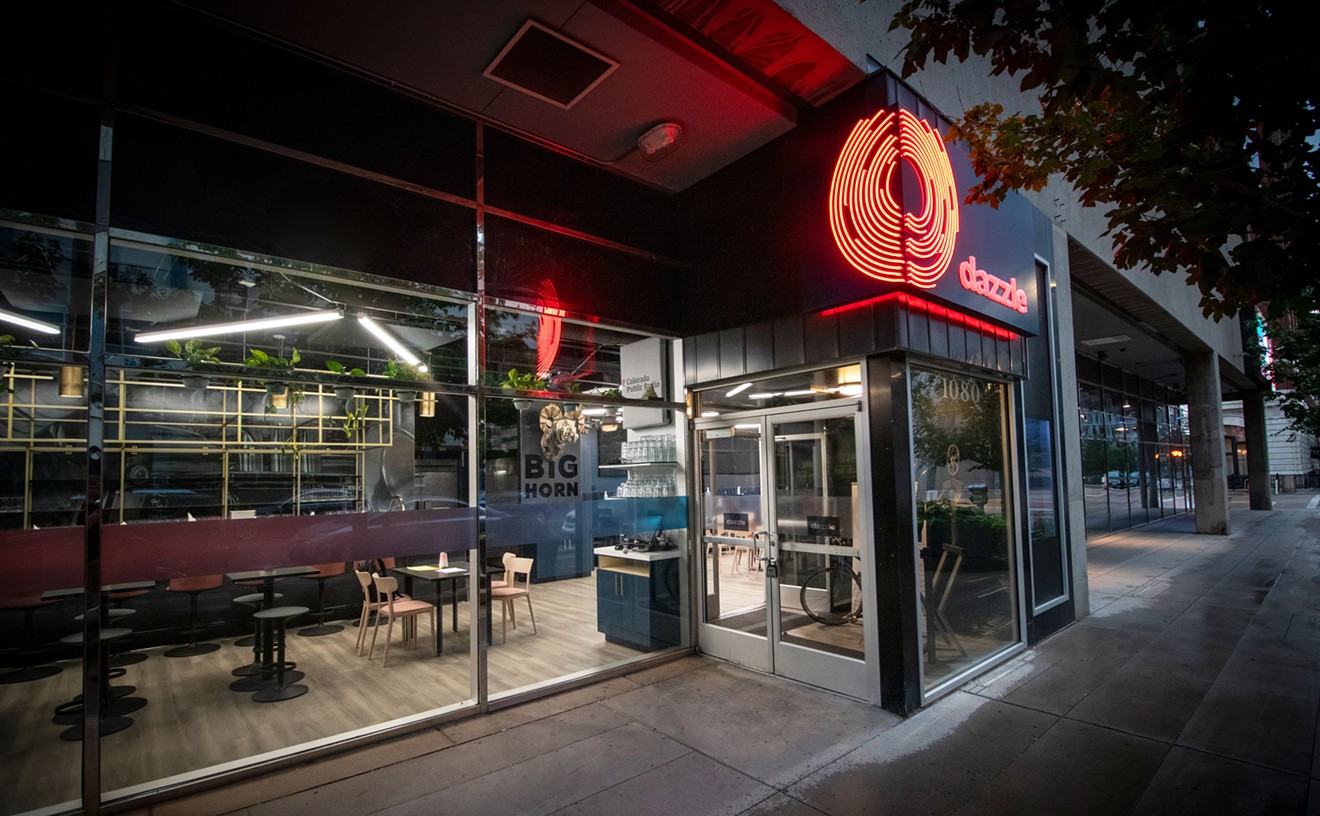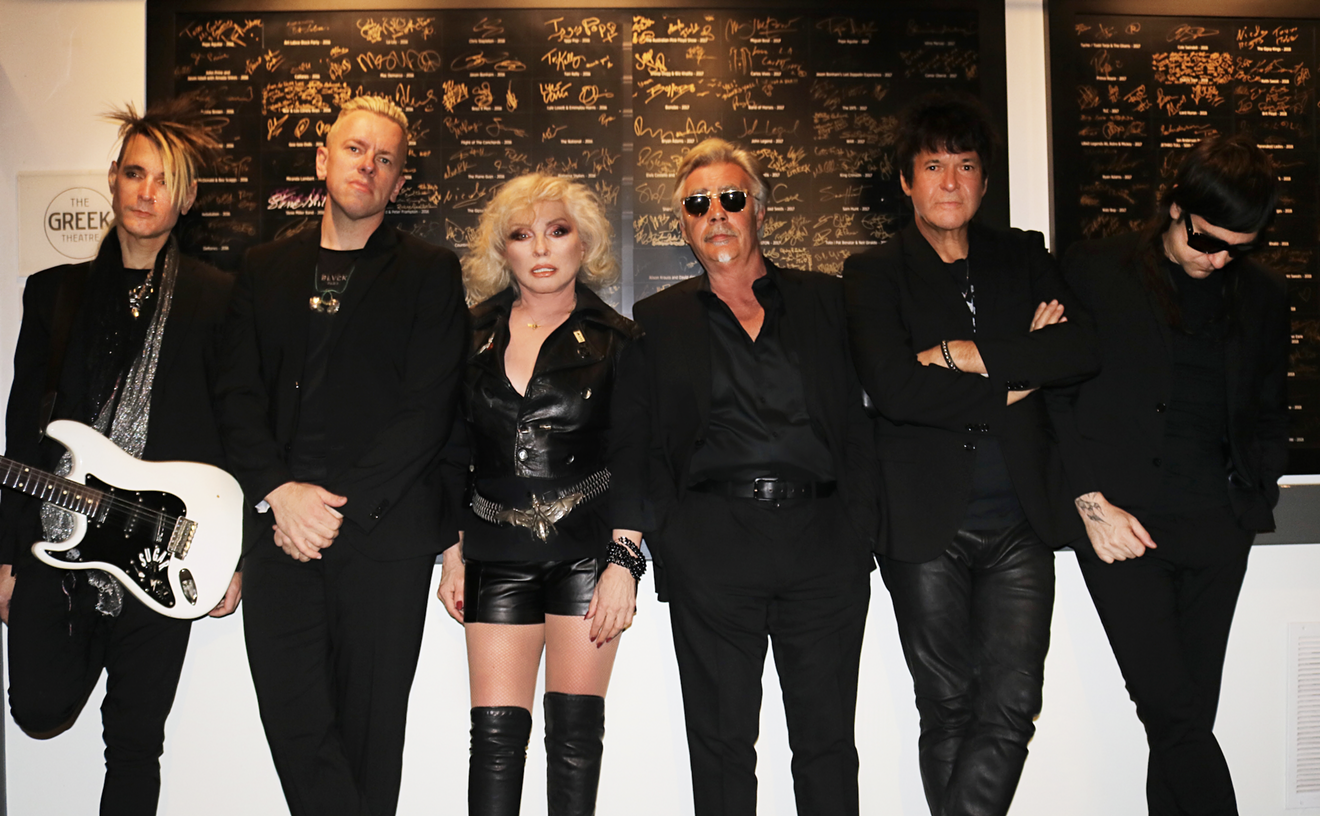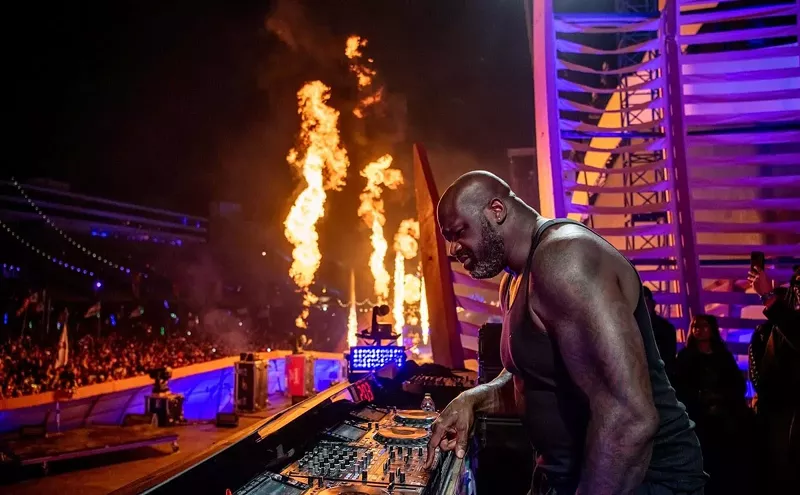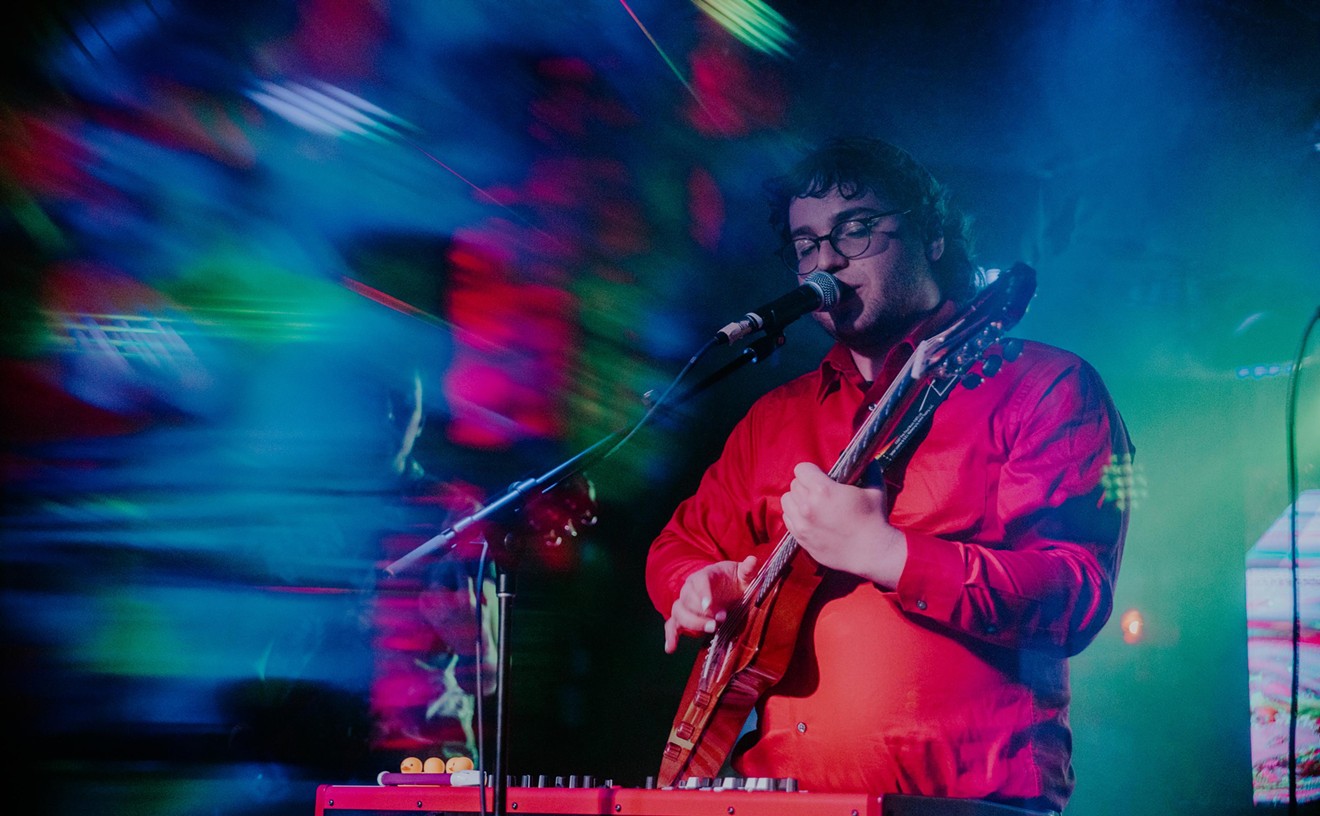FOANS crafted his new album, Gateway, in the aftermath of tragedy. Despite amassing millions of streams on Spotify, composer Andrew Dahabrah had been on a two-year hiatus from creating music. Then his family had to take his sister off of life support after she was allegedly murdered by her husband in February 2020 (he hasn’t been convicted, as he’s still on trial for assaulting her three months prior). In order to cope with the catastrophe, Dahabrah immersed himself in creating Gateway to bring light into the world instead of succumbing to darkness.
The result is a fourteen-track, introspective, ethereal piece of dance music that takes cues from lo-fi, ambient, house, techno, IDM and glitch. While an electronic album, the choice samples of guitars, harps, violins and tape fuzz give it an organic texture, grounding its sound in something that feels wholly existential rather than robotic. This may also be because Dahabrah made it using a set of hardware instruments and sequencers instead of relying primarily on modern digital workstations.
Gateway was originally slated for self-release in October, but its aesthetic attracted the attention of the internationally renowned record label 100% Silk, which released it in late January.
Westword hit up Dahabrah to discuss his approach to making music, his reclusive nature and how music acts as a conduit for healing and inspiration, both for himself and his fans, who have reached out to tell him how Gateway has touched them in different ways.
Westword: In your Instagram bio, it simply says “landscape designer.” How do you see yourself as a landscape designer? How would you describe your music in that context?
Andrew Dahabrah: The landscape designer thing I just kinda did as a joke. I thought it sounded cool.
You don't really play out that much. How come?
It wasn’t intentional, I guess. I lived in Fort Collins for a long time, and I deactivated my socials to focus on work. I’m living back closer to Denver now, and I’ve been playing here and there — though I would definitely love to get out more!
You play with a full hardware setup. Can you tell us about that approach, and why you do that instead of just plugging in a USB, like many electronic artists do nowadays? What limits have you found that this approach creates, and what possibilities does it open up?
I remember seeing Atom ™ and Tobias Freund play a six- to seven-hour set in the Boulder Canyon for this Lunar Lodge party, and it changed my life. I just found it so much more interesting than playing other people’s records. Not to say anything bad about deejaying, because I constantly listen to mixes, and I still look up to a lot of DJs, but I like the idea of making it a completely original experience. I also love the challenge of using hardware because it helps me in the studio a lot, and I just find it more rewarding. The hard part is trying to keep it diverse and flowing well enough to where the crowd doesn’t get bored, but a lot of people become very interested when they see I’m not using CDJs or a laptop.
Despite not playing live often, you have over a million streams on Spotify. How did that happen?
I’m not exactly sure. I’m guessing it was because of my first release on 100% Silk in 2016. I think I had a track that got added to a couple of editorial playlists, and that helped a lot.
What’s your relationship with 100% Silk, and how did that come to be?
They’ve always been super supportive. I first got in touch with them through my friend Joel, aka Golden Donna. He put me on, and I owe him a lot for that. Also, I was planning on just keeping Gateway as a self-release, but they asked if I was willing to put it on cassette, so of course I agreed.
Why did you feel like it needed to be a self-release when you've had success putting your releases on labels in the past?
I guess I just didn’t want to bother with sending demos and having the whole back-and-forth tug-of-war over creative control. The last two albums I’ve done were just a way of me getting things off my chest, so to speak, and working with labels can be very exhausting sometimes, and you end up losing sight of your own creative vision to fit in with their aesthetic. That being said, I’ve never had too many issues working with 100% Silk, and they’ve always been a huge help, so I was happy to work with them again.
Losing a sibling has to be remarkably difficult. Yet lots of great art has been made out of sadness and loss. In an Instagram post, you said that making this album was very therapeutic. How do you think it was therapeutic, and did you find your sound and/or approach changing as a result of the tragedy?
Music has always been an introspective process and my main source of expression. It’s not easy to describe the healing nature of it, because it's a very subconscious process, but it just brings me a sense of comfort and hope. Music has a very transportive power for me, as well, and it takes me back to better times when I need it to. I feel like my approach has changed in that I’m not afraid to experiment a little bit more with different styles and techniques.
Have you ever had anyone reach out to you saying that your work has impacted their life?
I’ve had quite a few people reach out and say my music has helped them through rough times. I’ve also had a lot of people say they study to my music and it's helped them through school. I honestly never thought my music would have that effect on people, but it's a rewarding feeling.
Gateway is out on 100% Silk. You can stream it on all platforms and download it on Bandcamp.
[
{
"name": "Air - MediumRectangle - Inline Content - Mobile Display Size",
"component": "12017618",
"insertPoint": "2",
"requiredCountToDisplay": "2"
},{
"name": "Editor Picks",
"component": "17242653",
"insertPoint": "4",
"requiredCountToDisplay": "1"
},{
"name": "Inline Links",
"component": "18838239",
"insertPoint": "8th",
"startingPoint": 8,
"requiredCountToDisplay": "7",
"maxInsertions": 25
},{
"name": "Air - MediumRectangle - Combo - Inline Content",
"component": "17261320",
"insertPoint": "8th",
"startingPoint": 8,
"requiredCountToDisplay": "7",
"maxInsertions": 25
},{
"name": "Inline Links",
"component": "18838239",
"insertPoint": "8th",
"startingPoint": 12,
"requiredCountToDisplay": "11",
"maxInsertions": 25
},{
"name": "Air - Leaderboard Tower - Combo - Inline Content",
"component": "17261321",
"insertPoint": "8th",
"startingPoint": 12,
"requiredCountToDisplay": "11",
"maxInsertions": 25
}
]

